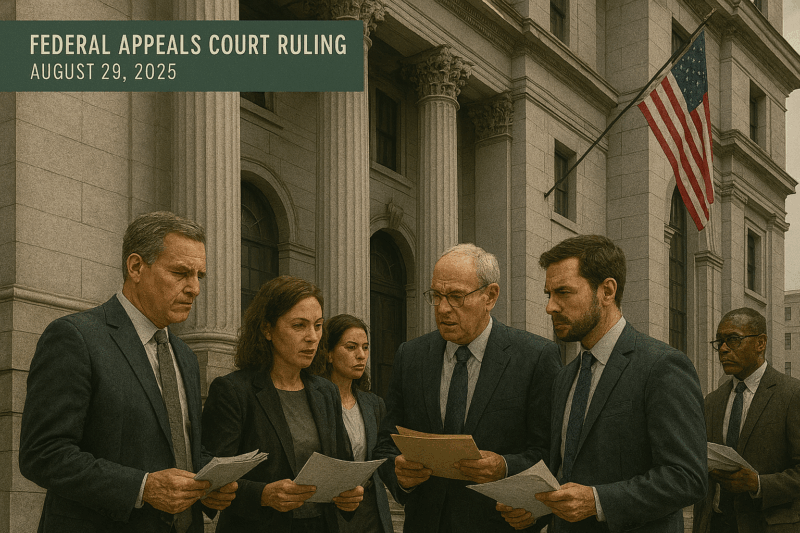On August 29, 2025, the U.S. Court of Appeals for the Federal Circuit delivered a significant blow to President Donald Trump’s trade agenda, ruling that most of his sweeping tariffs were illegal. The 7-4 decision, which upheld a May ruling by the U.S. Court of International Trade, found that Trump overstepped his authority by using the International Emergency Economic Powers Act (IEEPA) to impose tariffs on nearly all U.S. trading partners. This ruling, centered on the Trump tariffs and their trade policy implications, has sparked uncertainty in global markets and raised questions about the future of U.S. trade strategy. Focus keywords: Trump tariffs, federal appeals court, trade policy, IEEPA, tariff ruling.
Human Toll
Economic Impact on Businesses and Consumers
The Trump tariffs, including a 10% baseline on most countries and up to 50% on nations like India and Brazil, have disrupted businesses, particularly small importers. Companies like V.O.S. Selections Inc. and Plastic Services and Products reported challenges in forecasting costs and managing supply chains due to the erratic trade policy. Consumers face potential price hikes, as tariffs often increase the cost of imported goods, impacting everyday Americans.
Global Trade Relations
The tariff ruling threatens to weaken the U.S.’s leverage in trade negotiations. Countries like the European Union and Japan, which secured concessions to avoid higher tariffs, may now resist or renegotiate deals. The uncertainty has already roiled financial markets, with businesses bracing for further volatility.
Facts
Details of the Court Ruling
The federal appeals court ruled that Trump’s use of the IEEPA to impose “reciprocal” tariffs in April and additional levies on China, Canada, and Mexico in February was unlawful. The court emphasized that the IEEPA does not explicitly grant the president authority to impose tariffs, a power reserved for Congress under the U.S. Constitution. The tariff ruling affects tariffs imposed on April 2, dubbed “Liberation Day,” and those targeting alleged drug trafficking. However, tariffs on steel, aluminum, and autos under the Trade Expansion Act remain unaffected. The court delayed enforcement until October 14, 2025, allowing time for a Supreme Court appeal.
Legal and Financial Context
The Trump tariffs generated $159 billion in revenue by July 2025, doubling the previous year’s figures. The Justice Department warned that overturning the tariffs could lead to “financial ruin” by requiring refunds. The administration’s reliance on IEEPA, a 1977 law meant for national emergencies, was deemed an overreach, as it lacks explicit tariff authority.
Climate Context
Trade Policy and Economic Stability
The Trump tariffs were justified by citing trade deficits and drug trafficking as national emergencies. However, the federal appeals court rejected this, noting that tariffs are a congressional power. The ruling could stabilize trade by curbing unilateral presidential actions but risks short-term market disruptions if refunds are mandated. Economists warn that sustained tariffs could harm U.S. businesses and consumers more than foreign exporters.
What Lies Ahead
Supreme Court Appeal and Alternatives
Trump has vowed to appeal to the Supreme Court, claiming the tariff ruling could “destroy” the U.S. economy. The White House argues that tariffs protect American workers and manufacturers. If the Supreme Court upholds the ruling, Trump could use the Trade Act of 1974, which limits tariffs to 15% for 150 days, or other laws requiring Commerce Department investigations. These alternatives would restrict the scope and speed of tariff implementation.
Conclusion
The federal appeals court’s decision to strike down Trump tariffs marks a pivotal moment for U.S. trade policy. By curbing presidential overreach, the tariff ruling reaffirms congressional authority but leaves businesses and markets in limbo pending a Supreme Court decision. The future of IEEPA in trade policy remains uncertain, but the ruling underscores the need for balanced economic strategies. Focus keywords: Trump tariffs, federal appeals court, trade policy, IEEPA, tariff ruling.






